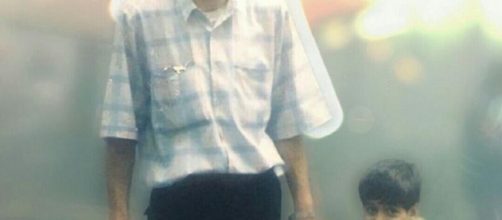Ramin is a 22-year-old Kurdish man from Iran’s minority who was sentenced to death in January - a sentence which will soon be carried out by the state judiciary. Reports indicate that police are on alert in his hometown in Sanandaj. One vital issue concerning the UN is that Panahi’s trial took place before the Revolutionary Court and lasted less than an hour.
“Despite marks of torture on his body, no investigation was ordered by the court,” a joint statement said. It was issued by Agnes Callamard, UN Special Rapporteur on arbitrary executions, Dainius Puras, UN Special Rapporteur on the right to enjoyment of the highest attainable physical and mental health standard, and Nils Melzer, the UN Special Rapporteur on torture.
“He was only allowed one meeting with his lawyer between his arrest and the trial, and no family visits. The judicial authorities did not disclose to him or his lawyer the details of the evidence against him,” the experts added.
Drug offenders
In the case of drug-related executions in Iran, the former UN Secretary-General Ban Ki-moon, had given a damning assessment of human rights highlighting the “alarming rate” of executions and saying they are often carried out after trials that do not meet international fair trial standards.
Juveniles
While the regime did amend its Islamic Penal Code in 2013, stopping the death sentence for juveniles for certain offences and offering the possibility of retrials for juveniles on death row, executions continue to be carried out in contravention of the International Convention on the Rights of the Child to which Iran is a signatory.
Deaths in custody and on the street on the Iranian regime’s watch
Two members of the Iranian parliament close to the reformist camp confirmed that 23-year-old Sina Ghanbari had died in the notorious Evin Prison in January after his arrest during the new rise of unrest in Iran that erupted at the end of December 2017. At least 21 youngsters were killed in the week of demonstrations in violent clashes between protesters and security guards.
Iran Human Rights Monitor registered 47 deaths in custody. Of these, 25 lost their lives due to a lack of medical care while in prison and 22 others took their own lives as a result of enduring tortures and other mistreatment. Shiva Fekri, who was held at Qarchak Prison of Varamin, lost her life due to high blood pressure and Isa Barahouii (22) committed suicide after undergoing torture in Zahedan.
One 43-year-old prisoner in Greater Tehran Prison first lost his eyesight then died as a result of poor medical attention.
The authorities also alleged that, in the same month, 63-year-old Kavous Seyed Emami, a Canadian-Iranian environmentalist, committed suicide in prison but this claim was rejected by his family.
Some former prisoners count the main problem at Iran’s prisons to be a violation of established human rights laws against long solitary confinement, harsh interrogation tactics, and the denial of phone calls and family visits - or even access to their lawyers.
Peaceful protesters
Two or more prominent teacher’s advocates are in prison and one reportedly tortured in Tehran for joining peaceful protests in recent months.
The Revolutionary Court in Ahwaz sentenced two Human Rights activists to death and another six to life imprisonment using charges of ‘Moharebeh’ or “enmity to God” as a pretext for the grotesquely harsh sentences.
Rouhani takes lead per capita in executions
Iran has the highest rate of executions per capita in the world. Official records during Rouhani’s tenure from August 2013 to September 2017, state that a total number of 3,111 executions took place, of which 81 were women; 24 had been under 18 at the time of their arrest. The true figures are undoubtedly much higher as most executions in Iran are carried out in secret.
Rouhani has specifically said that these executions “are either based on God’s laws or legislation adopted by the parliament… and we are merely implementers.”
In reality, however, executions in Iran have always been a means to crack down on people’s freedoms and quell social protests.
The importance of opposition and where it is to be found
In democratic nations, there is an official opposition whose role is to act as a mainstay in balancing the system of government, giving people and their organizations the freedom to openly criticize and oppose the running of their country’s affairs without fear. A democratic government takes office on the basis of the people's vote and rules by separating the three main powers: legislative, executive, and judiciary.
Any claim to the right for an opposition in an undemocratic system such as Iran is zero-tolerated and that's the reason behind its biggest opposition organization presently being run from outside the country.
There have been indications by Telegram users that Iran will be using the diversion of the World Cup as an opportunity to carry out punishments similar to the execution of father of two, Mohammad Salas.
The regime should take note, however, that this execution has been roundly condemned by the US Secretary of State, Mike Pompeo, who has clearly stated that the Iranian people deserve respect for human rights and freedoms and calls on US allies to join him against unjust executions. Let us hope his voice is heard and acted upon.




